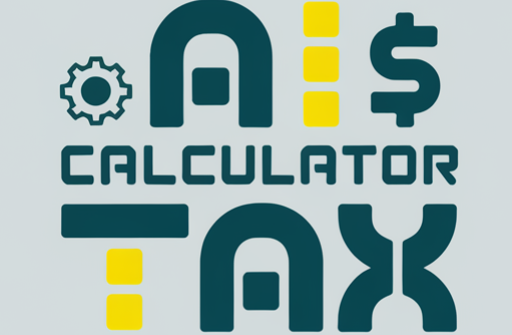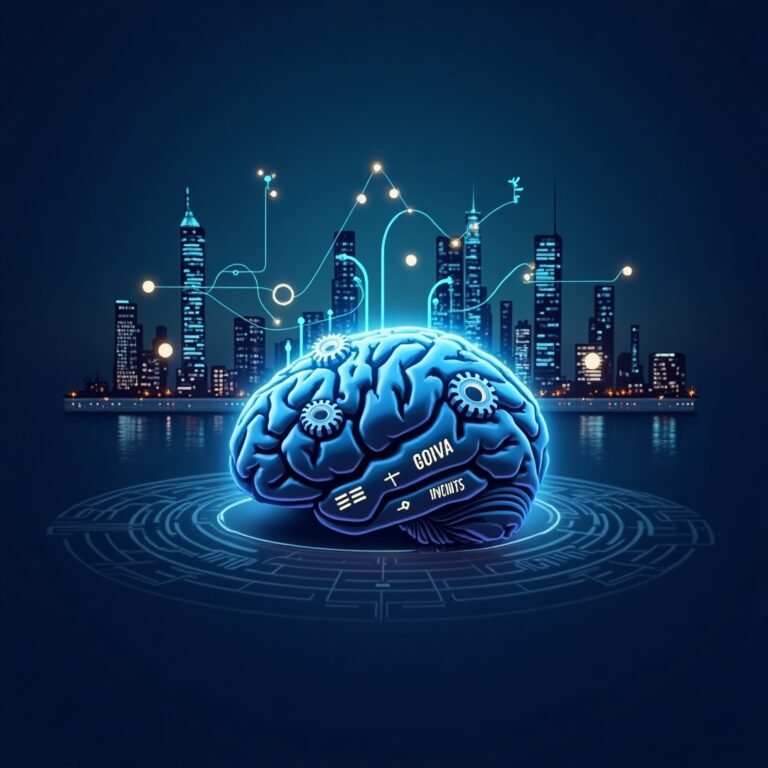Introduction
Artificial intelligence (AI) is rapidly transforming industries, and taxation is no exception. From automating tax filings to enhancing compliance and fraud detection, AI is reshaping how individuals, businesses, and governments handle tax processes. This article explores the future of AI in taxation, highlighting emerging trends, innovations, and challenges.
How AI Will Transform Tax Filing by 2030
AI-driven tax filing will move beyond basic automation to predictive and real-time tax adjustments. Advanced AI systems will:
- Auto-populate tax returns with real-time financial data.
- Identify deductions and credits dynamically.
- Reduce audit risks with AI-driven compliance checks.
As AI integrates with government tax systems, tax filing will become more accurate and nearly instantaneous.
AI and Blockchain in Tax Payments
The combination of AI and blockchain is set to enhance tax transparency and fraud prevention.
- Smart contracts could automate tax payments for businesses.
- AI-powered blockchain auditing will reduce tax evasion.
- Governments may introduce tokenized tax systems for secure, traceable transactions.
This innovation could revolutionize tax enforcement and compliance worldwide.
AI for Predictive Tax Planning
AI-driven predictive models will help businesses and individuals optimize tax strategies.
- Real-time tax forecasting based on financial data.
- AI-powered simulations to suggest tax-saving measures.
- Automatic compliance with evolving tax regulations.
By 2030, AI could provide personalized tax plans that adjust based on user spending and investment patterns.
The Rise of AI Tax Chatbots
Tax chatbots powered by Natural Language Processing (NLP) will enhance taxpayer assistance.
- 24/7 AI-driven tax advisory services.
- Instant answers to complex tax questions.
- Integration with personal finance software for real-time tax optimization.
These virtual assistants will reduce dependency on human tax advisors for routine inquiries.
AI for Global Tax Policy Analysis
AI will analyze vast amounts of global tax data to help policymakers and multinational corporations.
- AI-driven comparative tax analysis across different jurisdictions.
- Identifying tax loopholes and inconsistencies in international tax laws.
- Predicting the impact of new tax policies using machine learning models.
This will improve cross-border tax compliance and transparency.
AI and Cryptocurrency Tax Regulations
With the rise of digital assets, AI will play a key role in tracking and taxing cryptocurrency transactions.
- AI-driven tools will calculate crypto gains and losses automatically.
- Governments will use AI for crypto transaction monitoring and fraud detection.
- Smart AI systems will classify crypto assets under evolving tax laws.
AI will ensure that tax compliance in the decentralized finance (DeFi) space is efficient and fair.
AI in Government Tax Agencies
Governments will adopt AI for efficient tax administration and fraud detection.
- AI-driven taxpayer risk profiling for audits.
- Machine learning models to detect fraudulent filings.
- Automated taxpayer assistance portals for seamless communication.
By 2030, AI-powered tax agencies will improve efficiency while reducing bureaucratic delays.
The Role of AI in Future IRS Operations
The IRS and other tax authorities worldwide will leverage AI for:
- AI-driven fraud detection to identify suspicious tax patterns.
- Automated case resolution with AI-assisted audits.
- Predictive models to improve tax collection efficiency.
AI could redefine how tax authorities interact with taxpayers, making the system more responsive and fair.
AI for Smart Tax Refunds
AI will enhance the refund process by:
- Predicting refund amounts in real-time.
- Automatically applying refund optimizations based on deductions.
- Preventing fraudulent refund claims using AI-driven verification.
Smart tax refunds could mean instant processing and better financial management for taxpayers.
AI and the Gig Economy’s Tax Future
AI will simplify tax compliance for freelancers, gig workers, and independent contractors.
- Automated tax deductions based on transaction history.
- AI-driven quarterly tax estimates to avoid penalties.
- Smart tax compliance reminders for self-employed individuals.
AI will ensure gig workers pay accurate taxes without the burden of manual calculations.
FAQs
How will AI impact tax professionals?
AI will automate repetitive tasks, but tax professionals will still be needed for complex advisory services and legal compliance.
Will AI completely automate tax filing?
While AI will simplify and automate most tax processes, human oversight will still be necessary for highly customized tax situations.
Can AI help prevent tax fraud?
Yes, AI can detect anomalous patterns in tax filings, reducing fraud and ensuring compliance.
How does AI handle cryptocurrency taxation?
AI can track crypto transactions, calculate gains and losses, and ensure compliance with tax laws.
Will AI-powered tax chatbots replace human tax advisors?
AI chatbots will handle basic queries, but human experts will still be required for strategic tax planning.
How will AI improve international tax compliance?
AI will analyze global tax policies to help businesses and governments navigate cross-border tax regulations.
What role will blockchain play in AI-driven taxation?
Blockchain combined with AI will create transparent, automated tax systems, reducing fraud and improving efficiency.
Conclusion
The future of taxation is being reshaped by AI, from automated tax filings to smart refunds and predictive planning. Governments, businesses, and individuals must embrace these advancements to stay compliant and maximize tax benefits. As AI continues to evolve, the tax landscape will become more efficient, transparent, and intelligent.

